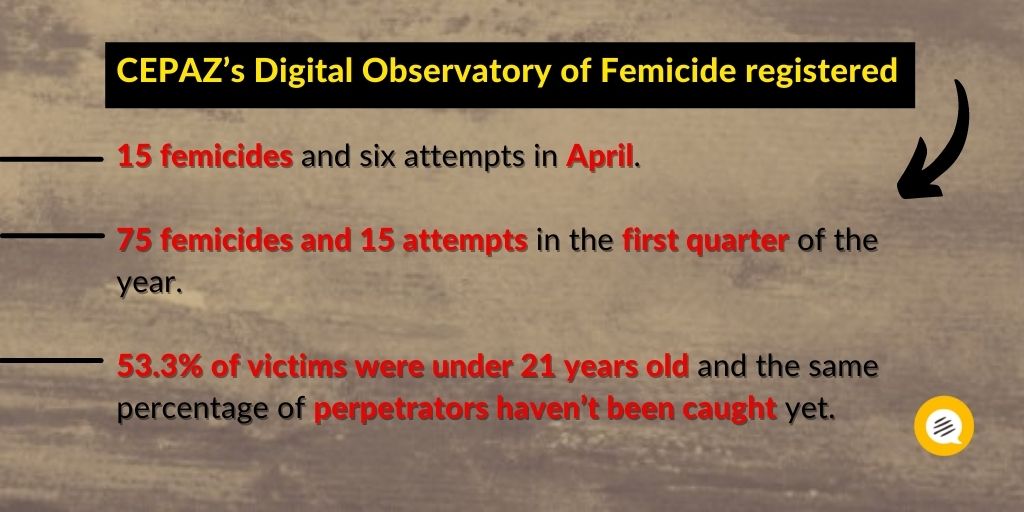The Death of Jesús Santrich
Jesús Santrich, one of the leaders of FARC dissidents was murdered in Venezuelan territory. Maduro’s regime ordered the DGCIM and SEBIN to transfer the custody of political prisoners over to the Prisons Ministry. The new oil tax system announced by China imposes a tax of almost 30 dollars per barrel on diluted bitumen.


- Five days after Colombian justice approved his extradition to the U.S., Jesús Santrich, one of the leaders of FARC dissidents was murdered in Venezuelan territory. There are at least three versions to explain his death:
- He was murdered by the National Guard in a counterintelligence operation.
- He was murdered by a rival gang in a clash.
- He was murdered by the Colombian Army in Zulia. This is FARC’s version and it would be very serious because that violation of Venezuelan territory could be considered an act of war.
- Since August 2019, intelligence reports have been saying that dissidents are on Venezuelan soil because Maduro said they were welcome here, among other reasons.
- Javier Tarazona, director of FundaRedes, said that “the State has been providing belligerent force for dissidents in Venezuela (…) Santrich has moved like a diplomat in the country, he had official vehicles and safe houses,” he said. Tarazona has been the only person to say that Santrich was in Zulia.
- Santrich was a part of the peace talks between FARC and the Colombian government.Then he had a position in the political party the former guerrillas founded and even had a seat in the Colombian Congress.
- However, an investigation cast a shade on his real commitment to the peace agreement. He went into hiding in June 2019 and alongside Iván Márquez, set up the Segunda Marquetalia dissident group.
- Maduro spoke on Tuesday about university enrollment.
- He said that 370,000 people would obtain their high school diploma this year, so they started enrolling them to go to schools that lack the budget or the personnel.
- There are 72 public universities in the country, all of them have been in disrepair for too many years.
- The Delegate Commission of the National Assembly elected in 2015 approved an agreement to condemn and reject the embargo on newspaper El Nacional. Deputies said they’re committed to documenting and denouncing all attacks on freedom of speech.
- They also demanded that minister Vladimir Padrino López report on the health of the eight military officers that have been kidnapped by the guerrillas in Apure.
- The Oil and Energy Commission will request the Delegate Commission to declare a humanitarian emergency because of the severe shortage of cooking gas, even though Venezuela is the sixth country with the largest gas reserves in the world, with 200 billion sq. feet.
- They also approved an agreement supporting Juan Guaidó’s “Agreement for National Salvation”.
- Maduro’s regime ordered the DGCIM and SEBIN to transfer the custody of political prisoners over to the Prisons Ministry.
- Political prisoner Luis De La Sotta’s family demanded his release from prison. He’s been arbitrarily detained for three years. “He hasn’t had a trial,” said his sister, who also assured that “he’s been tortured and subjected to cruel and inhuman treatment” at DGCIM.
- Economist Asdrúbal Oliveros said that Venezuela could have a 1,500% inflation rate.
- The new oil tax system announced by China imposes a tax of almost 30 dollars per barrel on diluted bitumen, a category under which Venezuelan oil is imported because it’s subject to great discounts that way.
- This new tax would eliminate a large part of PDVSA and its intermediaries’ revenue.
- Maduro’s Assembly installed its delegation to Parlasur and appointed the representatives that will preside each commission before this institution that has no repercussions on the region whatsoever.
- Maduro’s minister Jorge Arreaza said that he sent the book “The Art of Sanctions” and an article by the same author, Richard Nephew, to the ICC. He said Nephew was “an advisor to Barack Obama and Joe Biden.”
- Argentinian president Alberto Fernández assured that the violation of human rights in Venezuela has been slowly disappearing, and highlighted his efforts towards achieving the presence of the UN’s Office of the High Commissioner for Human Rights in Venezuela.
- Colombia is preparing for more protests: the dialogue sessions with Duque’s government haven’t reached an agreement with the organizations promoting the nationwide strike.
Caracas Chronicles is 100% reader-supported.
We’ve been able to hang on for 22 years in one of the craziest media landscapes in the world. We’ve seen different media outlets in Venezuela (and abroad) closing shop, something we’re looking to avoid at all costs. Your collaboration goes a long way in helping us weather the storm.
Donate





